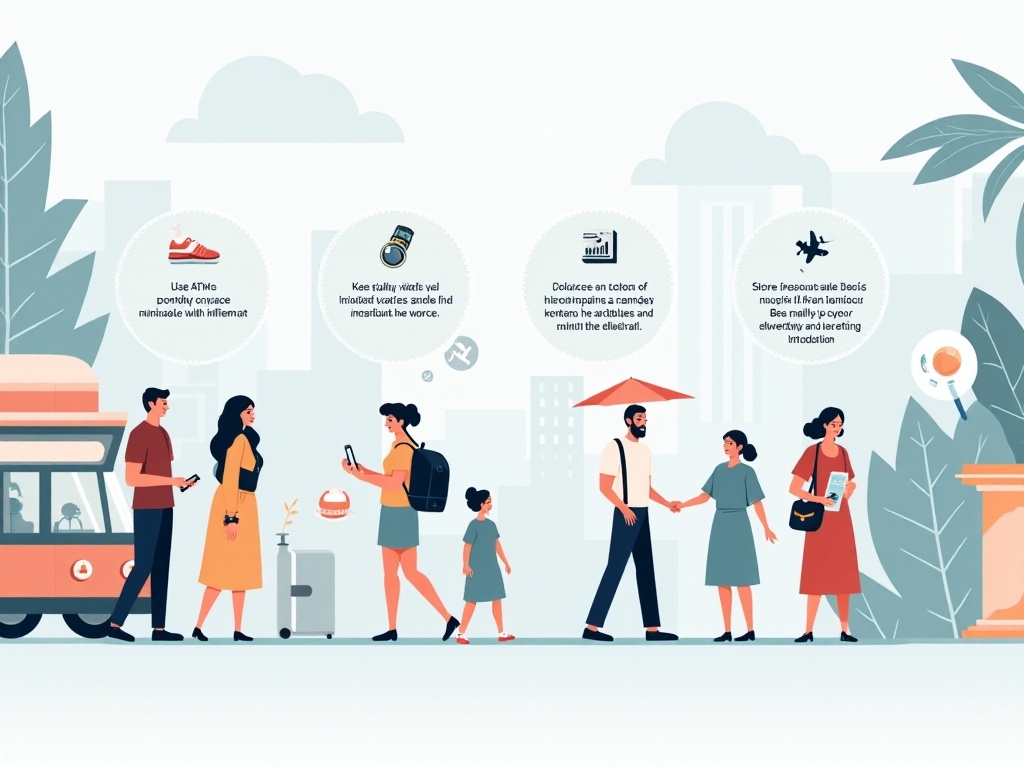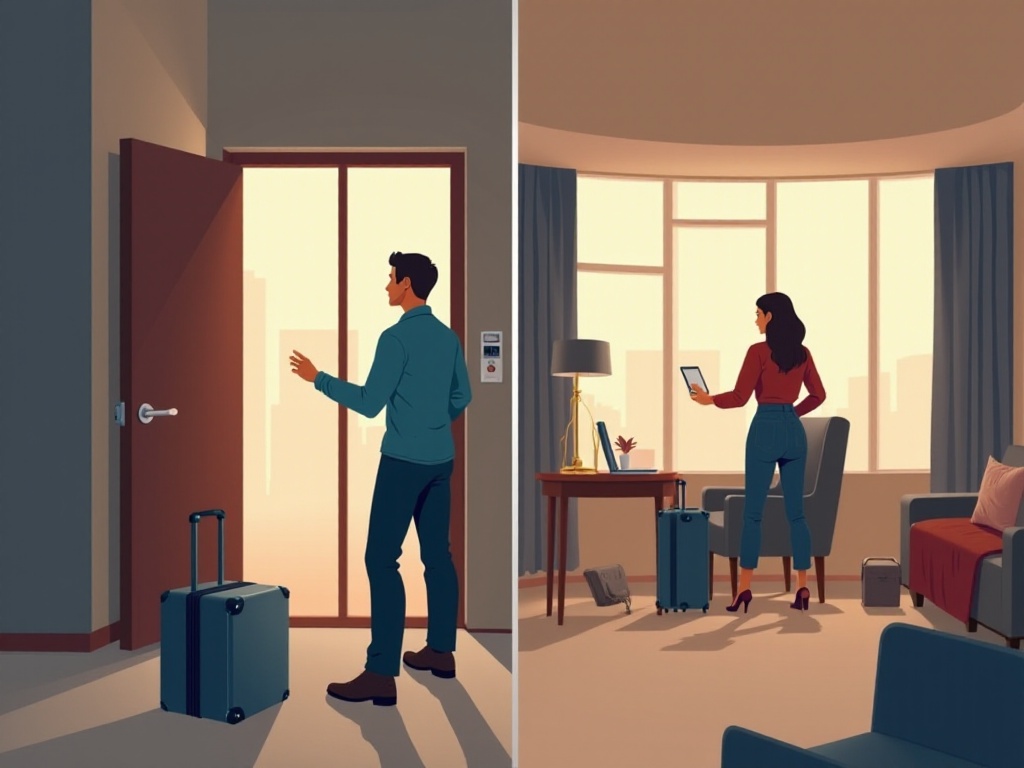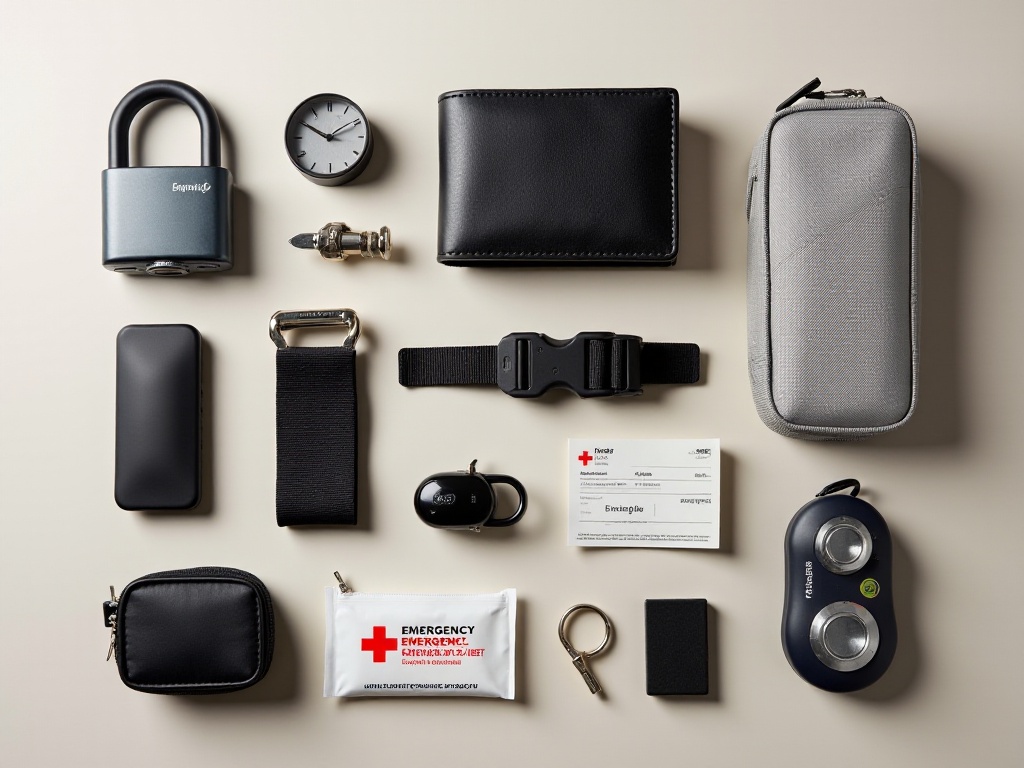
Preface
As a travel enthusiast who has covered half the globe, I deeply understand the importance of travel safety. Having just completed an amazing three-month world tour, from Machu Picchu in South America to Angkor Wat in Southeast Asia, from African savannas to Nordic fjords, each stop has shown me the wonders of this world. However, honestly speaking, solo travel does require special attention to safety issues. Friends often message me asking, "Aren't you afraid to travel alone everywhere?" Today, I'll share with you the safety experiences and lessons I've accumulated over these years of traveling.
About Accommodation
Accommodation safety is absolutely one of the most important topics in travel. I still remember my first experience in Paris, which was a nightmare. Because I hadn't booked a room in advance, after landing at Charles de Gaulle Airport, I dragged my luggage to find a seemingly decent cheap hotel near the train station. Who knew that once inside, the room was small and damp, the wallpaper was moldy, and the bathroom had a strange smell. Worse still, I could hear weird noises from the next room at midnight, and people would occasionally shout loudly in the hallway.
This experience taught me a lesson, and since then I've set myself an iron rule: must book rooms at least two weeks in advance. Now every time I plan a trip, I spend a lot of time researching accommodation. First is location, must choose areas with good security. For example, in Barcelona, I specifically avoid staying near Las Ramblas, because although it's a popular tourist area, it's also where pickpockets are most active.
When booking rooms, I pay special attention to several aspects: First is the room's lock system, hotels using electronic key cards are usually more secure. Second is the hotel's security measures, such as whether there's 24-hour front desk service, and whether there are surveillance cameras in corridors and elevators. Finally, it's about the surrounding environment, I use Google Street View to check the hotel's surroundings, to see if the return route at night is well-lit enough, and if there are convenience stores or 24-hour shops.
I've also developed a habit of carefully reading guest reviews. Honestly, the negative reviews often contain the most valuable information. I particularly look for keywords like "safety," "security," "noise," and "hygiene." Last year in Rome, through this method, I discovered that a seemingly nice hotel actually had drunk people causing trouble at the entrance at night. I ended up choosing another one, although it was more expensive, but I felt much safer staying there.
Now major booking platforms all have detailed room information and real photos, but I still suggest looking at photos taken by regular guests, because hotel-provided pictures are often specially processed to look perfect. Sometimes through guests' casual shots, you can actually discover some safety concerns, such as whether windows can be easily pried open, or whether bathrooms have anti-slip measures.
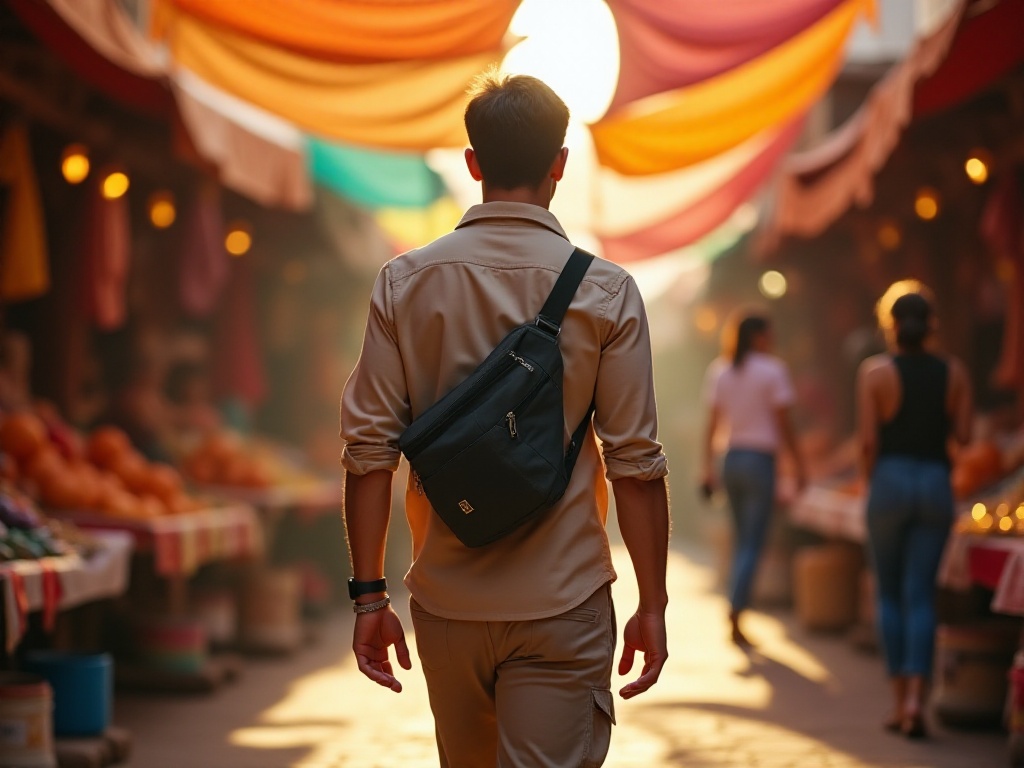
Valuable Items Protection
Regarding valuable items protection, my experience is: always prepare for the worst. I separate cash, bank cards, and documents, so even if unfortunately robbed, I won't lose everything. Usually, I put my passport and backup bank cards in the hotel safe, only carrying one credit card and appropriate amount of cash with me.
Specifically for cash management, I have a "three-point dispersion" principle: some in the wallet, some in a hidden body pocket, and some hidden in the suitcase. Based on my experience around the world, cash carried should not exceed local basic consumption needs for two days. For example, in Tokyo, considering the local cost of living, I usually carry maximum 20,000 yen, with the rest stored in the hotel safe.
Speaking of safes, here's a tip. Many people put all valuables inside, but not all hotel safes are secure enough. I first test if the safe is firmly fixed, checking if it can be easily moved. If the safe is loose, it's better to report to the front desk immediately, requesting a room change or using the front desk's safe service.
Last year in Bangkok, I met an Australian girl who put all her cash and passport in the room safe, but when checking out found she couldn't open it. After hotel staff forcibly opened it, everything inside was gone. Investigation revealed hotel staff had used a master key to open it. This lesson teaches us that even safes can't be completely trusted.
For electronic device protection, I now use anti-theft backpacks. Although more expensive than regular backpacks, they're worth the investment. These backpacks usually use anti-cut materials, have hidden zippers, and special anti-theft locks. Most importantly, they often have RFID protection function, protecting credit card information from being skimmed.
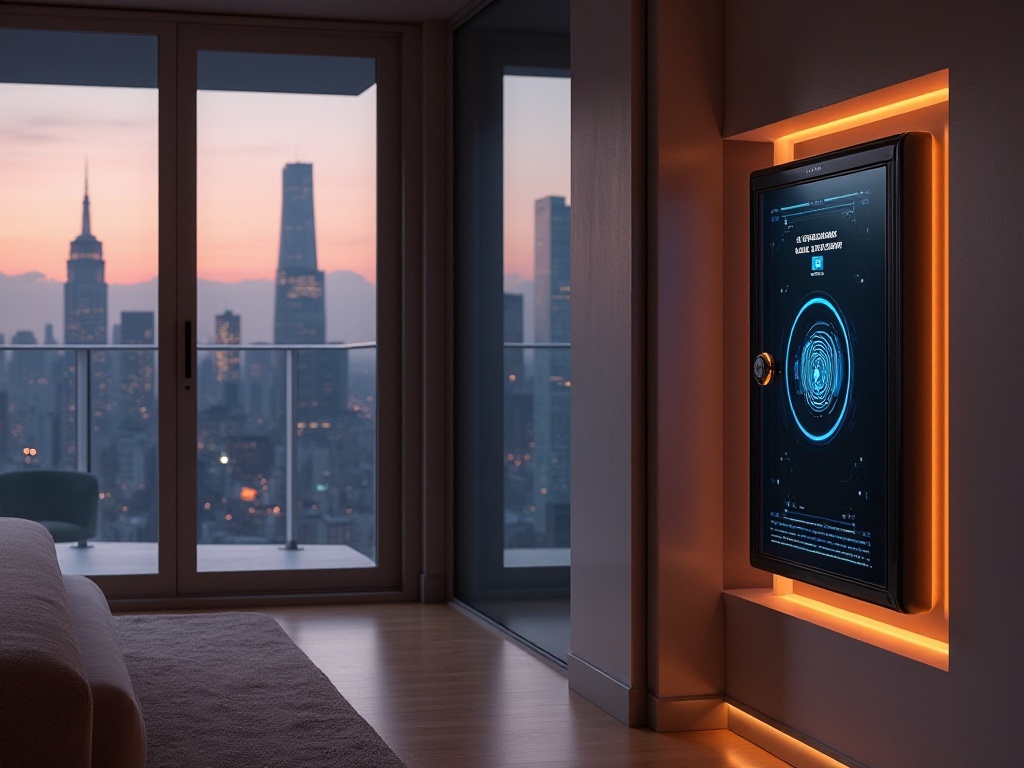
Personal Information Protection
In this social media age, many people like to share travel updates in real-time, but this is actually very dangerous behavior. My suggestion is delayed sharing, posting photos and experiences after leaving a place. This not only protects personal safety but also allows you to focus more on enjoying the current travel experience.
Last year in Santorini, I witnessed the troubles of real-time sharing. A social media influencer shared her luxury cave hotel room number and view on Instagram. The next day, strangers came directly to her room, claiming to be fans wanting photos. Although nothing serious happened, the experience was truly frightening.
Besides social media safety, personal information protection is also very important. I now use VPN to protect network security, especially when using public WiFi. When checking into hotels, also be careful about protecting personal information. Some front desks will directly announce your room number loudly, at this time it's better to politely stop them and ask them to write it down or tell you quietly.
Regarding document storage, I carry passport copies and digital versions with me, keeping originals in the safe. I also store photos of important documents on my phone and upload them to cloud storage for emergencies. This habit proved very useful when I lost my passport last year, having these backup files made the passport replacement process much smoother.
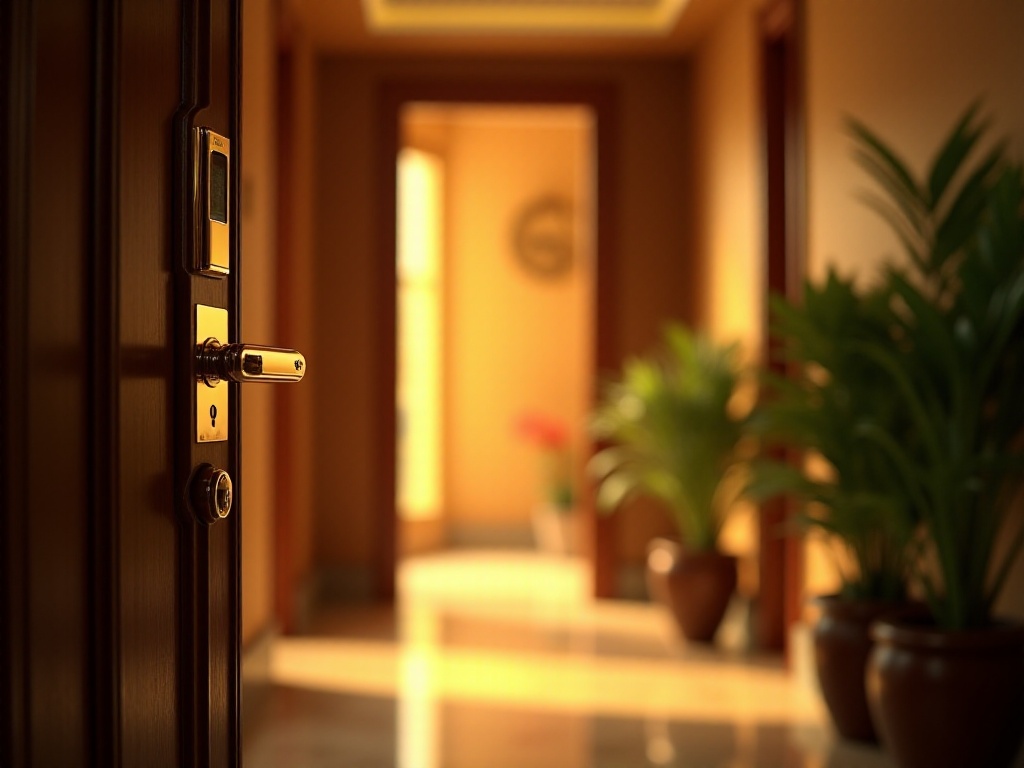
Behavioral Safety Guidelines
Regarding behavioral safety, the most important thing is respecting local culture and customs. When traveling in Dubai, I paid special attention to dress code. Although it's an international metropolis, it's still a Muslim country. Women should avoid wearing too revealing clothes, and men should also maintain propriety in public places. My experience is to learn about destination cultural taboos and basic etiquette before departure, this not only avoids trouble but also gains local people's goodwill.
In unfamiliar environments, staying alert is necessary but don't be overly tense. I learn local emergency numbers in advance and save embassy contact information. When going out, try to avoid being alone too late, especially in less populated areas. If must go out at night, I choose to take a taxi instead of walking, and generally choose regular taxi companies or reliable ride-hailing platforms.
Food safety is also an important travel topic. My suggestion is to try local food gradually, not challenging too many unknown foods at once. When dining at street stalls, observe hygiene conditions and local patronage. Best to carry some common medicines, like digestive medicine, cold medicine, etc.
Another important point is controlling alcohol consumption. Maintaining a clear head is especially important in foreign countries. I've seen too many examples of people getting into trouble due to drunken behavior. Remember last year in Prague, an American tourist who drank too much was making noise on Charles Bridge and got taken away by police.
Meeting new friends in unfamiliar environments is great, but safety must be noted. My principle is: socialize in public places, don't easily go to strangers' places, and don't casually accept food and drinks from strangers. If participating in local parties or events, better go with companions and learn about the event basics in advance.
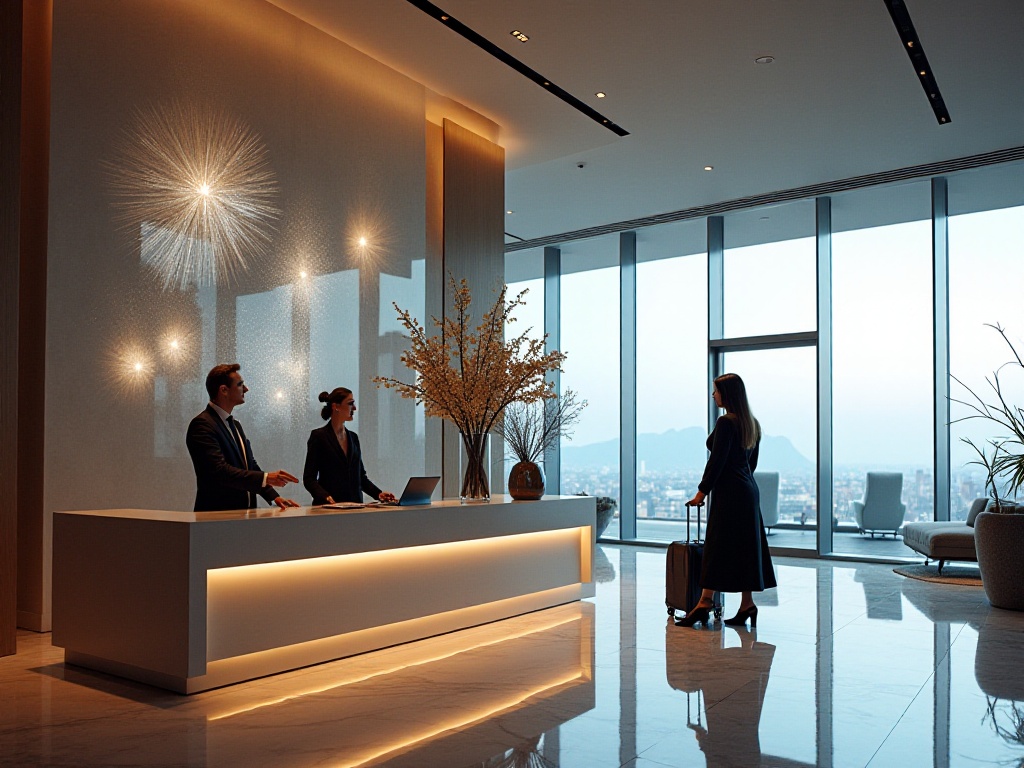
Final Words
Through these years of travel experiences, I deeply feel that: travel safety isn't an anxiety-inducing topic, but a basic guarantee for better world exploration. As long as we make adequate preparations and establish basic safety awareness, travel becomes relaxed and enjoyable.
Each journey is an opportunity for growth, through continuous experience accumulation, we can ensure our safety while enjoying travel pleasures. Hope these experiences can help those preparing to depart, making your travel journey smoother.
Finally, unexpected situations are inevitable in travel, but as long as we maintain calm minds, most problems can be solved. Looking forward to sharing in detail how to identify and deal with various travel scams in the next article. After all, understanding these tricks in advance lets us travel more confidently.
Next
First Time Traveling to Japan Alone? Don't Miss These Essential Preparations! A Comprehensive Guide
A comprehensive guide covering essential travel safety preparations, including document management, luggage security, accommodation safety, and personal property protection, helping travelers minimize risks during their journey.
Essential Safety Guide for Solo Female Travelers in 2024: From Hotel Booking to Scam Prevention
A comprehensive guide covering travel safety aspects including accommodation security, personal belongings protection, and behavioral safety. Provides practical advice on lodging preparation, valuables management, document security, and scam prevention for travelers
What's It Like to Travel Alone to the Sahara Desert in Morocco? An Adventure from Ramadan to Desert Camping
A comprehensive guide covering essential travel safety aspects, including pre-trip preparation, document management, accommodation security, property protection, and emergency response protocols for a secure travel experience
Next
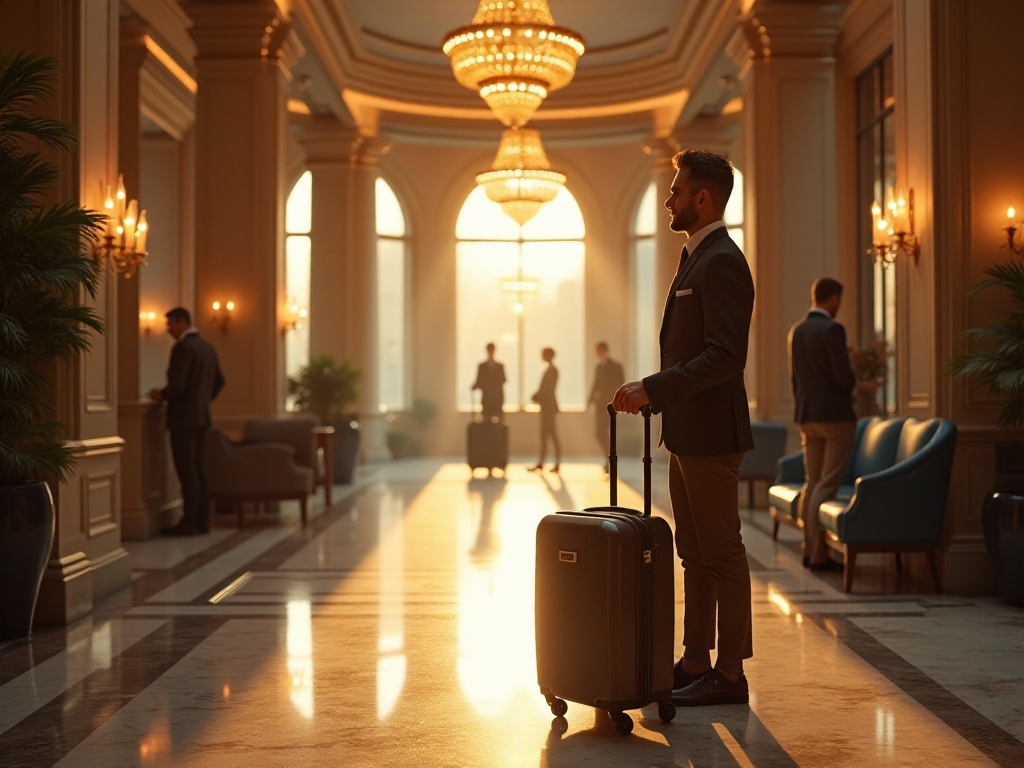
First Time Traveling to Japan Alone? Don't Miss These Essential Preparations! A Comprehensive Guide
A comprehensive guide covering essential travel safety preparations, including document management, luggage security, accommodation safety, and personal property protection, helping travelers minimize risks during their journey.
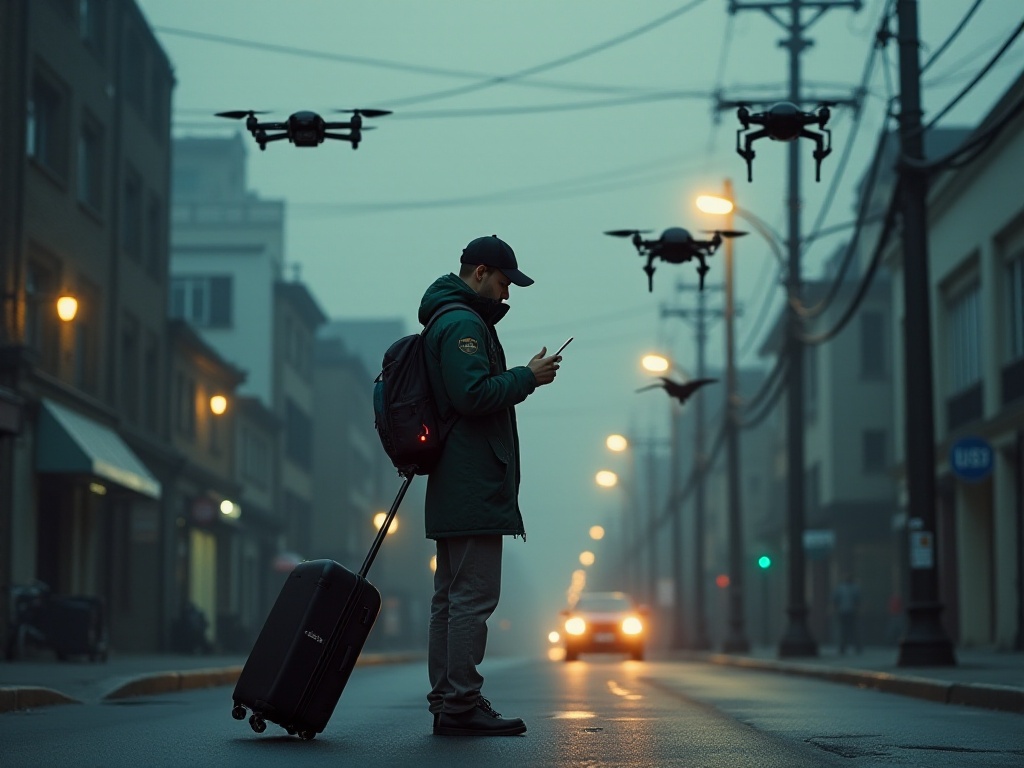
Essential Safety Guide for Solo Female Travelers in 2024: From Hotel Booking to Scam Prevention
A comprehensive guide covering travel safety aspects including accommodation security, personal belongings protection, and behavioral safety. Provides practical advice on lodging preparation, valuables management, document security, and scam prevention for travelers
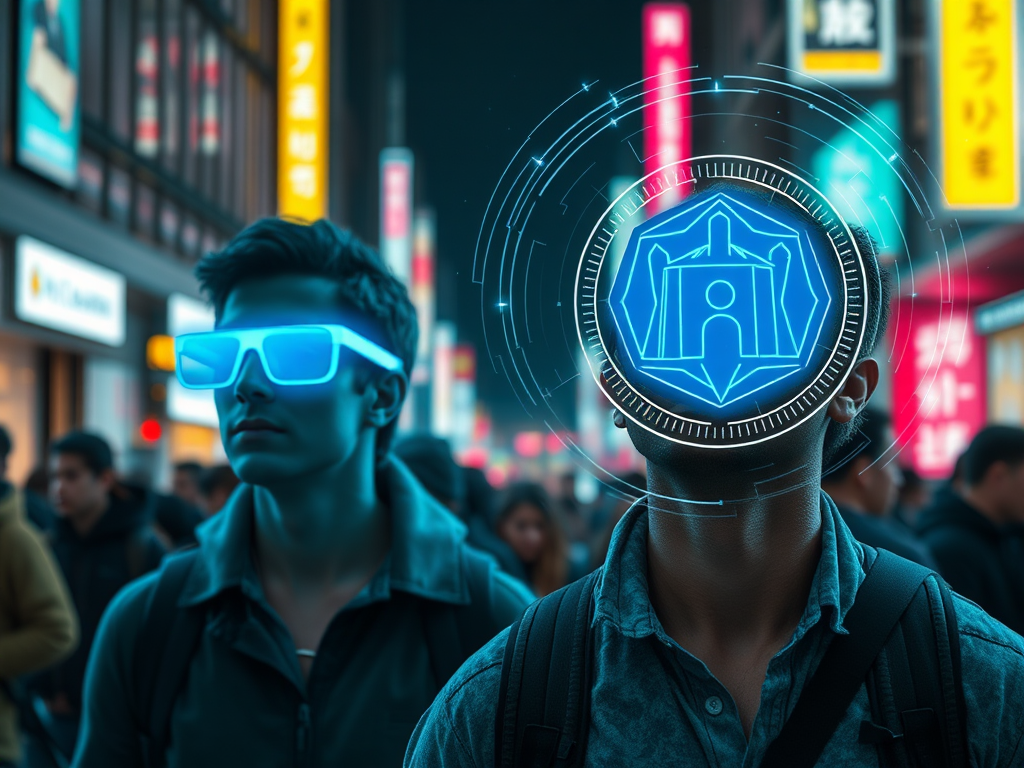
What's It Like to Travel Alone to the Sahara Desert in Morocco? An Adventure from Ramadan to Desert Camping
A comprehensive guide covering essential travel safety aspects, including pre-trip preparation, document management, accommodation security, property protection, and emergency response protocols for a secure travel experience

